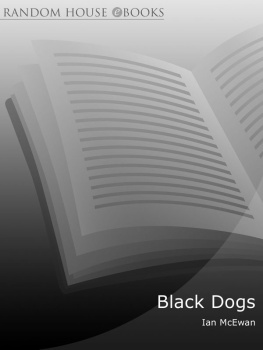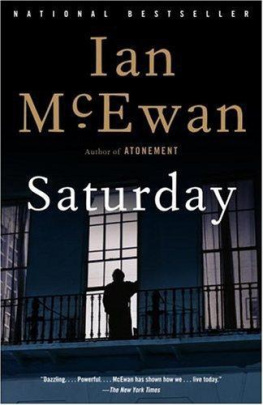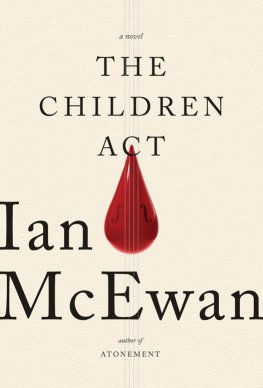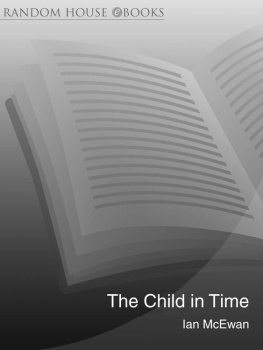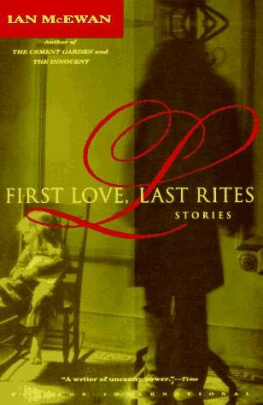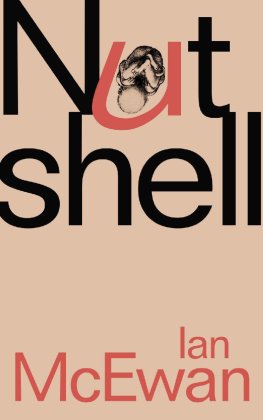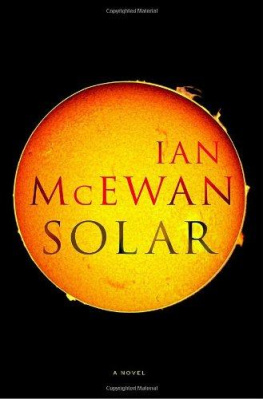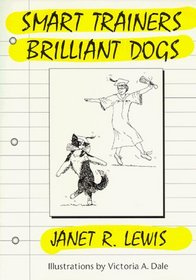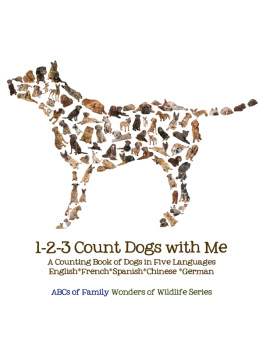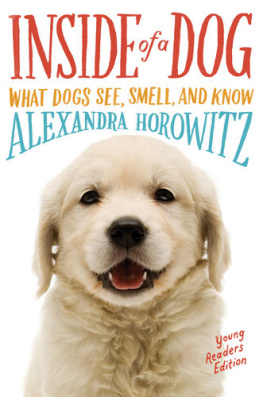Ian McEwan - Black Dogs
Here you can read online Ian McEwan - Black Dogs full text of the book (entire story) in english for free. Download pdf and epub, get meaning, cover and reviews about this ebook. year: 1998, publisher: Vintage Books,, genre: Non-fiction. Description of the work, (preface) as well as reviews are available. Best literature library LitArk.com created for fans of good reading and offers a wide selection of genres:
Romance novel
Science fiction
Adventure
Detective
Science
History
Home and family
Prose
Art
Politics
Computer
Non-fiction
Religion
Business
Children
Humor
Choose a favorite category and find really read worthwhile books. Enjoy immersion in the world of imagination, feel the emotions of the characters or learn something new for yourself, make an fascinating discovery.
- Book:Black Dogs
- Author:
- Publisher:Vintage Books,
- Genre:
- Year:1998
- Rating:3 / 5
- Favourites:Add to favourites
- Your mark:
- 60
- 1
- 2
- 3
- 4
- 5
Black Dogs: summary, description and annotation
We offer to read an annotation, description, summary or preface (depends on what the author of the book "Black Dogs" wrote himself). If you haven't found the necessary information about the book — write in the comments, we will try to find it.
Black Dogs — read online for free the complete book (whole text) full work
Below is the text of the book, divided by pages. System saving the place of the last page read, allows you to conveniently read the book "Black Dogs" online for free, without having to search again every time where you left off. Put a bookmark, and you can go to the page where you finished reading at any time.
Font size:
Interval:
Bookmark:

IAN McEWAN
VINTAGE BOOKS
London
This eBook is copyright material and must not be copied, reproduced, transferred, distributed, leased, licensed or publicly performed or used in any way except as specifically permitted in writing by the publishers, as allowed under the terms and conditions under which it was purchased or as strictly permitted by applicable copyright law. Any unauthorised distribution or use of this text may be a direct infringement of the authors and publishers rights and those responsible may be liable in law accordingly.
Version 1.0
Epub ISBN 9781409089957
www.randomhouse.co.uk
Published by Vintage 1998
18 20 19 17
Copyright Ian McEwan 1992
Ian McEwan has asserted his right under the Copyright, Designs and Patents Act, 1988 to be identified as the author of this work
This book is sold subject to the condition that it shall not by way of trade or otherwise, be lent, resold, hired out, or otherwise circulated without the publishers prior consent in any form of binding or cover other than that in which it is published and without a similar condition including this condition being imposed on the subsequent purchaser
First published in Great Britain in 1992 by Jonathan Cape
Vintage Random House, 20 Vauxhall Bridge Road, London SW1V 2SA
www.vintage-books.co.uk
Addresses for companies within The Random House Group Limited can be found at: www.randomhouse.co.uk/offices.htm
The Random House Group Limited Reg. No. 954009
A CIP catalogue record for this book is available from the British Library
ISBN 9780099277088
The Random House Group Limited supports The Forest Stewardship Council (FSC), the leading international forest certification organisation. All our titles that are printed on Greenpeace approved FSC certified paper carry the FSC logo. Our paper procurement policy can be found at: www.rbooks.co.uk/environment

Printed in the UK by CPI Bookmarque, Croydon, CR0 4TD
TO JON COOK, WHO
SAW THEM TOO
In these times I dont, in a manner of speaking, know what I want; perhaps I dont want what I know and want what I dont know.
MARSILIO FICINO,
letter to Giovanni Cavalcanti, c. 1475
BLACK DOGS
Ian McEwan has written two collections of stories, First Love, Last Rites and In Between the Sheets, and eleven novels, The Cement Garden, The Comfort of Strangers, The Child in Time, The Innocent, Black Dogs, The Daydreamer, Enduring Love, Amsterdam, Atonement, Saturday and On Chesil Beach. He won the Booker Prize for Amsterdam in 1998.
ALSO BY IAN McEWAN
First Love, Last Rites
In Between the Sheets
The Cement Garden
The Comfort of Strangers
The Child in Time
The Innocent
The Daydreamer
Enduring Love
Amsterdam
Atonement
Saturday
On Chesil Beach
Black Dogs is cinematic in scope ... McEwans insights rise like vapours from the crater of history
The Times
The book is kept alive by its adroit use of shifting perspectives, and its doubling back through time for multiple reconstructions, which vividly illustrate McEwans thesis that our point of view alters the very way we see, feel and remember events. Here, his old skill for getting inside the skins of his characters serves him as well as ever. The book richly suggests our human potentialities for mere waste as well as sheer evil, and for a sort of imperilled happiness; the dogs, which disappear into the foothills of Europe like black stains in a grey dawn, could take any form to reappear
Spectator
Quivering with an almost ESP alertness to the different ways in which human beings can be damaged, Black Dogs pads masterfully around territory Ian McEwan has long marked out as his own ... acutely conscious of lifes ability to injure the helpless, he wholeheartedly empathises with the menaced victim against the panting predators ... a further testament to one of recent fictions most remarkable regenerations ... McEwans transformation ... to a novelist unsurpassed for his responsive, responsible humanity
Sunday Times
A chilling parable for our times
The Scotsman
A powerful, strangely unforgettable book ... about the existence of evil and whether it can be defeated by rational action
Sunday Telegraph
Leisurely and expansive meditation on the nature of good and evil, the moral limits of political reform and religious belief, the intoxications of violence and the redemptive power of love in less that a hundred and fifty pages, and without a trace of pretension or a moment of tedium. This is a brilliant book
New Yorker
NOTE:
The places mentioned in this novel correspond to actual French villages, but the characters associated with them are entirely fictional and bear no resemblance to persons living or dead. The Maires story and the Maire himself have no basis in historical fact.
I.M.
E VER SINCE I lost mine in a road accident when I was eight, I have had my eye on other peoples parents. This was particularly true during my teens when many of my friends were casting off their own folk, and I did rather well in a lonely, hand-me-down way. In our neighbourhood there was no shortage of faintly dejected fathers and mothers only too happy to have at least one seventeen-year-old around to appreciate their jokes, advice, cooking, even their money. At the same time I was something of a parent myself. My immediate milieu in those days was the new and disintegrating marriage of my sister Jean to a man called Harper. My protge and intimate in this unhappy household was my three-year-old niece, Sally, Jeans only child. The rages and reconciliations that surged up and down the big apartment Jean had inherited half the estate; my half was held in trust tended to sweep Sally aside. Naturally, I identified with an abandoned child and so we holed up nicely from time to time in a large room overlooking the garden with her toys and my records, and a tiny kitchen we used whenever the savagery beyond made us not want to show our faces.
Looking after her was good for me. It kept me civilised and away from my own problems. Another two decades were to pass before I felt as rooted as I did then. Most of all I enjoyed the evenings when Jean and Harper were out, particularly in the summer when I would read to Sally until she fell asleep, and later do my homework on the big table by the open french windows, facing out to the sweet smell of scented stock and traffic dust. I was studying for A levels at The Beamish on Elgin Crescent, a crammer which liked to call itself an academy. When I looked up from my work and saw Sally behind me in the darkening room, on her back, sheets and teddies pushed down below her knees, arms and legs flung wide, in what I took to be an attitude of completely misguided trust in the benevolence of her world, I was elated by a wild and painful protectiveness, a stab in the heart, and I am sure it was for this I have had four children of my own. I never had any doubts about it; at some level you remain an orphan for life; looking after children is one way of looking after yourself.
Unpredictably, Jean would burst in on us, powered by guilt or by a surplus of love from making peace with Harper, and she would bear Sally away to their end of the apartment with coos and hugs and worthless promises. That was when the blackness, the hollow feeling of unbelonging, was likely to come down. Rather than skulk about, or watch TV like other kids, I would slope off into the night, down Ladbroke Grove, to the household currently warmest to me. The images that come to mind after more than twenty-five years are of pale, stuccoed mansions, some peeling, others immaculate, Powis Square perhaps, and a rich yellow light from the open front door revealing in the darkness a white-faced adolescent, already six feet tall, shuffling inside his Chelsea boots. Oh, good evening Mrs Langley. Sorry to trouble you. Is Toby in?
Font size:
Interval:
Bookmark:
Similar books «Black Dogs»
Look at similar books to Black Dogs. We have selected literature similar in name and meaning in the hope of providing readers with more options to find new, interesting, not yet read works.
Discussion, reviews of the book Black Dogs and just readers' own opinions. Leave your comments, write what you think about the work, its meaning or the main characters. Specify what exactly you liked and what you didn't like, and why you think so.

